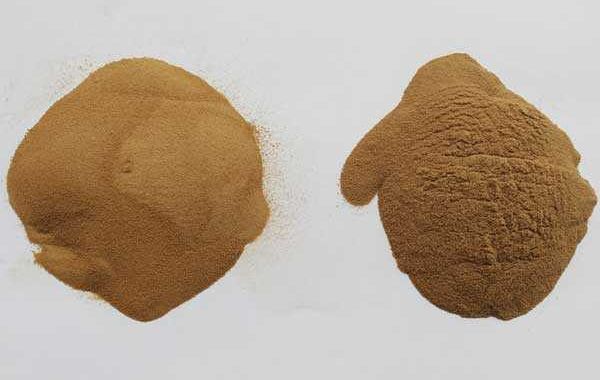Concrete is the world’s most widely used building material, chosen for its robustness, versatility, and durability. However, creating concrete that truly lasts requires more than just mixing cement, water, and aggregate. In pursuit of high-strength, long-lasting concrete, a powerful additive called sodium naphthalene sulfonate has come to the forefront. Acting as a superplasticizer, sodium naphthalene sulfonate enhances workability, strengthens the final product, and significantly increases its durability. Let’s explore why sodium naphthalene sulfonate is essential in producing durable concrete and how it’s transforming the construction industry.
What is Sodium Naphthalene Sulfonate?
Sodium naphthalene sulfonate (SNS) is a chemical compound derived from naphthalene, a type of hydrocarbon typically sourced from coal tar or petroleum. This additive belongs to the superplasticizer category, a class of admixtures specifically designed to increase concrete’s workability without needing more water. By dispersing cement particles and reducing friction, SNS makes the concrete mix easier to pour, spread, and set, even with a lower water-to-cement ratio. This leads to a denser, stronger, and more durable concrete that withstands the test of time.
Why Durability Matters in Concrete
Concrete durability is crucial in modern construction, impacting everything from safety to cost. Durable concrete can resist environmental stresses like temperature changes, freeze-thaw cycles, chemical exposure, and physical wear, all of which can cause concrete to degrade prematurely. As structures age, the need for repairs and maintenance increases, driving up costs. By improving durability, SNF-A helps create longer-lasting structures that require less upkeep and offer greater long-term value.
How Sodium Naphthalene Sulfonate Unlocks Durable Concrete
- Lowers Water-Cement Ratio for Denser Concrete
The water-to-cement ratio is one of the most important factors in determining concrete strength and durability. While adding water can make concrete more workable, excess water leads to larger void spaces, weakening the concrete and making it more susceptible to cracking. Sodium naphthalene sulfonate enables a lower water-cement ratio while still providing excellent workability, resulting in denser concrete that resists wear, moisture penetration, and other environmental challenges.
- Reduces Shrinkage and Cracking
Concrete naturally shrinks as it cures and water evaporates from the mix. This shrinkage can lead to internal stress and cracks, compromising the structural integrity of the finished product. Sodium naphthalene sulfonate minimizes the water needed, reducing the amount of shrinkage and limiting the potential for cracks. By decreasing the likelihood of cracking, SNS enhances durability and provides long-term protection for concrete structures.
- Enhances Resistance to Environmental Damage
Concrete is often exposed to challenging conditions, including freeze-thaw cycles, chemical exposure, and water infiltration. These factors can weaken the concrete, causing it to deteriorate prematurely. Sodium naphthalene sulfonate reduces the porosity of concrete, making it less permeable to moisture and other damaging substances. This makes SNS-treated concrete more resilient against environmental stressors, increasing its ability to withstand the elements without losing structural integrity.
- Improves Compressive Strength for Heavier Loads
The compressive strength of concrete refers to its ability to withstand heavy loads without breaking. Sodium naphthalene sulfonate disperses cement particles more effectively, resulting in a homogeneous mix with fewer weak spots. This enhances the overall strength of the concrete, making it ideal for load-bearing applications like bridges, high-rise buildings, and industrial flooring. Stronger concrete also means less need for repairs over time, contributing to a more sustainable, low-maintenance structure.
Key Applications of Durable SNS-Treated Concrete
Due to its durability-enhancing properties, sodium naphthalene sulfonate has become essential in various construction applications, particularly those that demand long-lasting concrete. Here are some of the primary areas where SNS-treated concrete is making a significant impact:
Bridges and Overpasses: Bridges are exposed to constant traffic and extreme weather conditions, making durability critical. The strength and low permeability of SNS-treated concrete help prevent damage from freeze-thaw cycles and chemical exposure.
High-Rise Buildings: Skyscrapers and other tall structures require concrete with excellent load-bearing capabilities. Sodium naphthalene sulfonate ensures a dense, high-strength mix, providing stability and reducing the risk of structural degradation over time.
Tunnels and Underground Construction: Tunnels face unique environmental pressures, including groundwater exposure. SNS-treated concrete resists water infiltration, ensuring that tunnels remain safe and stable over the long term.
Industrial Flooring: In factories, warehouses, and distribution centers, concrete floors face constant stress from heavy machinery and foot traffic. Sodium naphthalene sulfonate provides durability and abrasion resistance, making these floors longer-lasting and more cost-effective to maintain.
Marine Structures: Coastal buildings, piers, and docks need concrete that can withstand the harsh marine environment. The low permeability of SNS-treated concrete prevents saltwater from penetrating and causing erosion or corrosion.
Environmental Benefits of Sodium Naphthalene Sulfonate
Besides improving durability, sodium naphthalene sulfonate contributes to environmental sustainability in construction. Here’s how:
Reduces Cement Usage: By lowering the water-cement ratio, SNS reduces the amount of cement required in a mix. Since cement production is a significant source of carbon emissions, reducing its use helps lower the environmental impact of concrete production.
Extends Structure Lifespan: Durable concrete structures require fewer repairs and replacements, reducing the demand for raw materials and lowering construction waste over time. The extended lifespan provided by SNS-treated concrete supports sustainable construction practices by reducing the environmental impact of building maintenance.
Minimizes Water Consumption: Sodium naphthalene sulfonate allows for high workability with less water, making it particularly valuable in water-scarce regions. This helps conserve water resources, contributing to sustainable development efforts.
Best Practices for Using Sodium Naphthalene Sulfonate in Concrete
While sodium naphthalene sulfonate offers numerous benefits, using it effectively requires attention to proper mixing techniques, dosage, and compatibility with other additives. Here are some best practices:
Follow Recommended Dosage: Accurate dosing is critical to achieve the desired workability and durability effects. Following the manufacturer’s guidelines ensures that SNS is used optimally, avoiding any potential issues with setting time or consistency.
Pair with Compatible Admixtures: In some projects, sodium naphthalene sulfonate may be used with other admixtures, such as air-entraining agents or retarders, to create a customized concrete mix that meets specific performance criteria.
Use Quality Materials: To unlock the full benefits of sodium naphthalene sulfonate, it’s essential to start with high-quality cement, aggregate, and water. The effectiveness of SNS relies on a balanced and compatible mix, so choosing reliable, consistent materials is crucial.
Monitor Mix Design Carefully: To achieve the best results, ensure that the concrete mix is properly designed and tested. The right mix design helps maximize the performance of SNS and ensures that the concrete meets all project requirements.
Conclusion
Sodium naphthalene sulfonate is a vital ingredient in creating durable, long-lasting concrete structures. Its ability to reduce water content, increase strength, and enhance resistance to environmental damage makes it an invaluable asset in modern construction. By unlocking new levels of durability, SNS-treated concrete extends the lifespan of structures, lowers maintenance costs, and reduces the environmental impact of concrete production.
As construction technology continues to advance, sodium naphthalene sulfonate plays a crucial role in meeting the demands of complex, large-scale projects. Whether it’s bridges, high-rise buildings, industrial floors, or marine structures, SNS provides the durability needed to build confidently, knowing that these structures will stand strong for generations to come.








